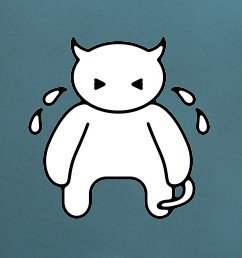Taoists accepted the naturalistic conception of the universe, but in their system, by a peculiar combination, there is still place for God, immortality, and freedom; man is still one with the universe, if only he can “see things under the form of eternity”
(1975: 5). Yu-Lan Fung. 1975. Chuang Tzu: A new selected translation with an exposition of the philosophy of Kuo Hsiang. New York: Gordon Press
—————————————————————————————
The term “God” or “Heaven” is commonly found in Chuang Tzu’s works. However I think his notion of God is different with religious God as in Christianity, Islam and other religions, which generally means the Creator. “God” termed by Chuang Tzu is not explicit in meaning. However it bears the meaning of the unseen force that governs the nature by a set of eternal and absolute law. The following passages found in Chuang Tzu’s works hint us on this:
The Tao of God operates ceaselessly; and all things are produced… (126: 157)
…your life is not your own. It is the delegated harmony of God; your individuality is not your individuality is not your own, It is the delegated adaptability of God; your posterity is not your own. It is the delegated exuviae of God; you move, but know not how. You are at rest, but know not how. You are at rest, but know not why. You taste, but know not the cause. These are the operation of God’s laws. How then should you get Tao as to have it for your own? (1926: 282)
…what is it to be embraced in the obliterating unity of God? It is this. With reference to positive and negative, to that which is so and that which is not so, ---- if the positive is really positive, it must necessarily be different from its negative: there is no room for argument. And if that which is so really is so, it must necessarily be different from that which is not so: there is no room for argument. (1926: 31)
However God in Chuang Tzu’s sense is not the Creator of the universe that created all the beings, nor image of the Creator who passes divine passages he wants to produce. For Chuang Tzu, beings spontaneously produce themselves and natural means everything spontaneously becomes what it is. As Chuang Tzu’s great commentator Kuo Tsiang puts it, “everything is as it is by nature, not made to be so. Therefore, when Chuang Tzu spoke of heaven (t’ien,天, also translated as God by other translators,like Giles from Cambridge University), he meant the natural, not the blue sky… T’ien is the general name of all things. There is nothing that can be specifically called t’ien. Who can be the Lord that commands things? Everything produces itself and it not created by others. This is the way of nature.” (1975: 45)
Chuang Tzu’s notion of God is not religious nor it sacred. Perhaps this is the reason why Chinese prominent philosopher Yu-lan Fung tends not to translate the Chinese term “天” as God but heaven and nature (1975: 44). Meanwhile another translator Burton Watson translates the character as “heaven” or “heavenly” in most cases (1968: 25). Chuang Tzu’s notion of God or heaven is definitely very different with Francis Bacon’s notion of God. Bacon was a Christian who believed in Christian God. For Bacon, God is the Creator of the universe who set the law of na 天, pronounced as “tian” (t’ien)in Chinese. 天道is translated as “the Tao of God” by Herbert A. Giles in Chuang Tzu: Mystic, Moralist, and Social Reformer (1926: 157). However the word 天is also translated as heaven and nature, see 1975: 44.
9.1.08
Subscribe to:
Post Comments (Atom)

4 comments:
all the knowledge of gods, heaven and hell are useless when human do all sorts of despicable acts and get away with it without any feel of remorse and guilt
there has been a saying that god is actually screwing around with creation, ensuring evil so you puny tiny weaklings will come beg to Him for love and attention.
Agree with the first comment. :-)
The second one is an interesting idea. Quite right... if there's a god, he/she must be a naughty god.
There's a reason that the translators differ. Early in Chinese history, there were areas that were clearly monotheist and called God "Tian" (heaven). By the time of Chuang Tzu, many Chinese used the word to refer clearly to nature while others, such as Confucius, referred vaguely back to the original conception--although the Tian of Confucius seems to only get involved in grand affairs, we're definitely not talking about the personal God of the Protestants and Catholics who helps Aunt Sally get money to fix her car's tire. As for Chuang Tzu, my guess that his Tian is a bit like the Tao of Lao-tzu--it's nature with the added element (absent in Western thought) that what is natural is inherently good and also forms a guide (the original send of Tao, after all, is path or way).
Post a Comment